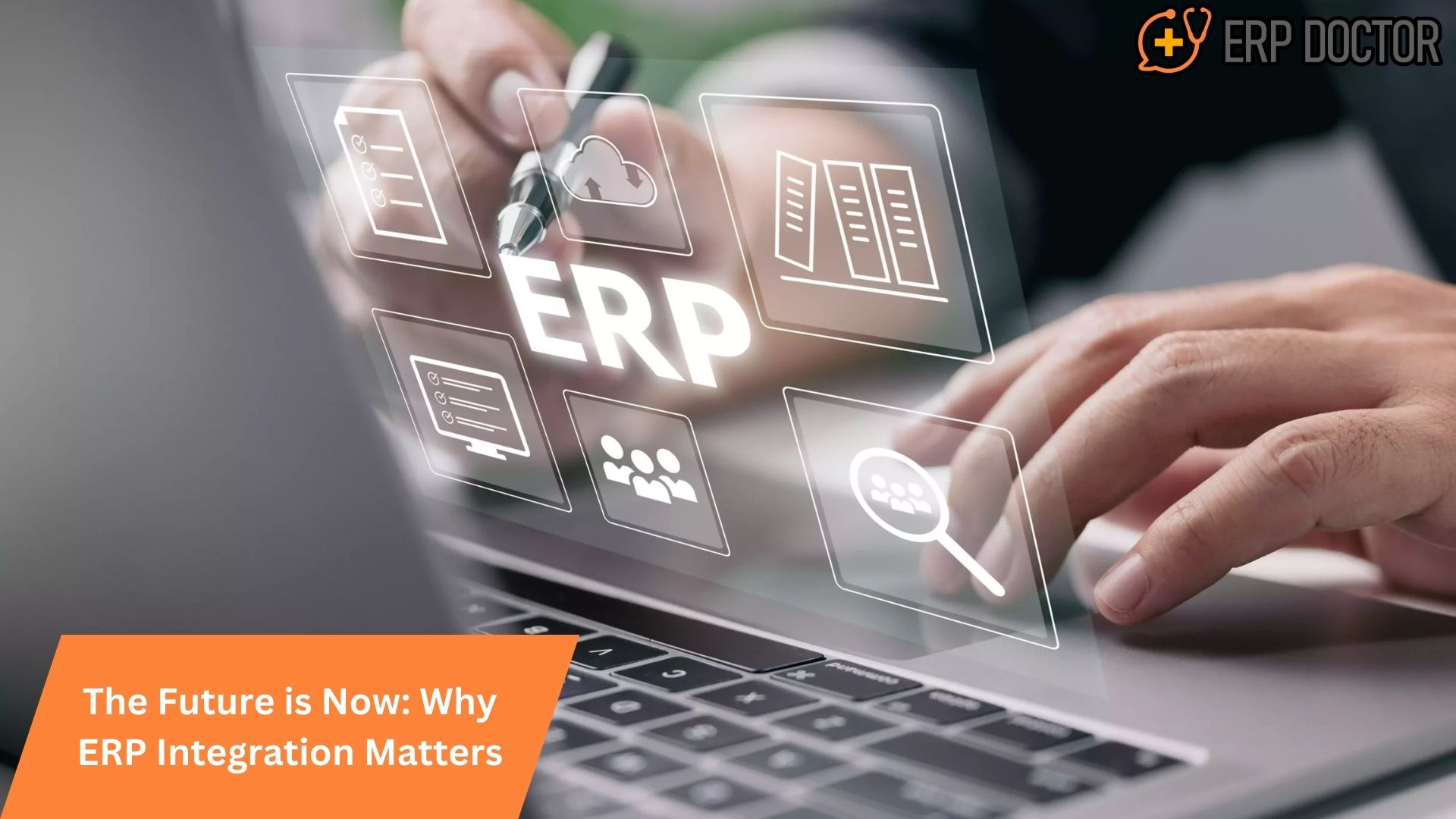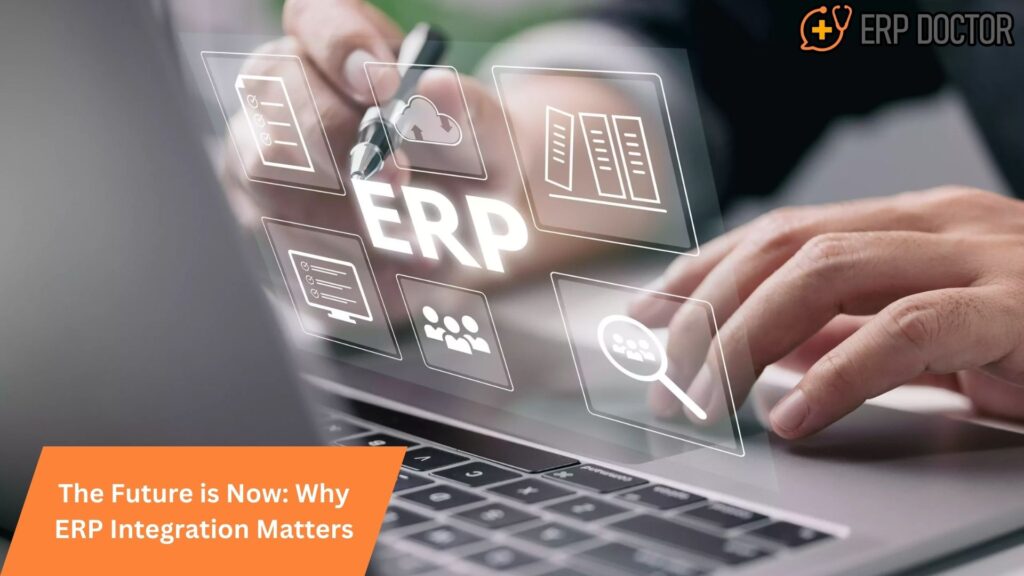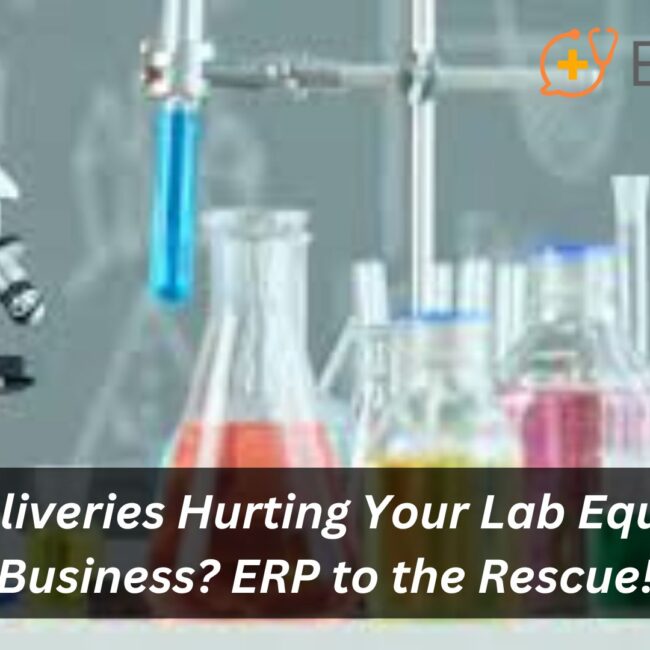
The Future is Now: Why ERP Integration Matters

Why ERP Integration is Essential for Business Growth
In today’s fast-paced digital economy, businesses need to streamline their operations, enhance efficiency, and improve decision-making. ERP (Enterprise Resource Planning) integration plays a pivotal role in achieving these objectives. Companies that adopt ERP solutions gain a competitive edge by centralizing data, automating workflows, and reducing operational bottlenecks. This article explores why ERP integration is crucial for modern enterprises and how it can revolutionize business processes.
What is ERP Integration?
ERP integration refers to the seamless connection of an ERP system with other business applications, such as CRM, eCommerce platforms, supply chain management, and financial software. The goal is to unify data across departments, ensuring consistency, accuracy, and real-time accessibility.
Key Benefits of ERP Integration
- Improved Efficiency – Automates repetitive tasks and reduces manual errors.
- Centralized Data Management – Unifies all business data into a single platform.
- Enhanced Decision-Making – Provides real-time insights and analytics.
- Scalability – Supports business growth by adapting to changing demands.
- Cost Reduction – Minimizes operational expenses by optimizing resource allocation.
- Better Collaboration – Facilitates interdepartmental communication and workflow automation.
- Customer Satisfaction – Enhances service delivery and response time.
- Regulatory Compliance – Helps businesses adhere to industry regulations and standards.
How ERP Integration Impacts Different Industries
Manufacturing
Manufacturers rely on ERP software to streamline production planning, inventory management, and quality control. Integration with supply chain and logistics tools ensures smoother operations. With ERP integration, manufacturing companies can:
Reduce Downtime – Predictive maintenance features prevent unexpected equipment failures.
Automate Production Planning – Ensure real-time production scheduling and resource allocation.
Improve Inventory Tracking – Reduce wastage and optimize stock levels with automated tracking.
Enhance Quality Control – Identify defects early and maintain compliance with industry standards.
Retail & eCommerce
ERP integration connects eCommerce platforms with inventory, order processing, and financial systems, ensuring real-time stock updates and efficient order fulfillment. Retail businesses benefit from:
Faster Payment & Return Processing – Automate transactions and returns to improve operational efficiency.
Seamless Omnichannel Experience – Sync online and offline sales channels for better customer experiences.
Automated Order Management – Reduce manual errors and streamline fulfillment processes.
Customer Insights & Personalization – Leverage customer data for targeted promotions and enhanced shopping experiences.
Healthcare
Hospitals and healthcare providers use ERP solutions to manage patient records, billing, and compliance requirements, improving overall efficiency. Key advantages include:
Optimized Resource Allocation – Manage hospital staff, equipment, and medication more efficiently.
Unified Patient Data – Centralize medical records for quick access and improved patient care.
Regulatory Compliance – Ensure adherence to healthcare laws and data privacy regulations.
Automated Billing & Claims Processing – Reduce administrative workload and enhance accuracy.
Finance & Accounting
ERP systems automate financial transactions, reporting, and compliance, helping businesses maintain transparency and accuracy in financial operations. The benefits include:
Fraud Detection & Risk Management – Implement security features that safeguard financial transactions.
Real-Time Financial Insights – Gain access to instant reports on revenue, expenses, and profitability.
Automated Invoicing & Payments – Reduce manual processing time and enhance cash flow management.
Regulatory Compliance & Audits – Keep financial records up to date and prepare for audits seamlessly.
Logistics & Supply Chain
With ERP integration, logistics firms can optimize route planning, track shipments in real-time, and manage warehouse operations more effectively. Some of the key benefits include:
Seamless Vendor & Supplier Collaboration – Improve procurement efficiency and reduce supply chain disruptions.
End-to-End Supply Chain Visibility – Track raw materials, inventory, and finished goods in real-time.
Efficient Route Optimization – Reduce transportation costs and delivery times with intelligent routing.
Warehouse Automation – Implement barcoding and RFID technology for accurate inventory tracking.
Demand Forecasting – Utilize AI-driven insights to predict demand and adjust inventory levels accordingly.
Steps to Successfully Implement ERP Integration
- Assess Business Needs – Identify key areas that need improvement.
- Choose the Right ERP Solution – Select an ERP system that aligns with your business goals.
- Plan the Integration Process – Establish a roadmap for data migration and system compatibility.
- Train Employees – Educate staff on new workflows and system functionalities.
- Monitor & Optimize – Continuously track performance and make necessary adjustments.
The future of business operations depends on the effective implementation of ERP integration. By adopting ERP solutions, companies can enhance efficiency, drive growth, and stay competitive in an evolving market. Whether you’re in manufacturing, healthcare, or retail, integrating ERP software is no longer an option—it’s a necessity.
FAQs
1. What is the biggest challenge in ERP integration?
The biggest challenge is ensuring seamless data synchronization across all systems while minimizing downtime and operational disruptions.
2. How long does ERP integration typically take?
The timeframe varies based on company size and complexity but can take anywhere from 3 months to over a year.
3. Can small businesses benefit from ERP integration?
Yes, even small businesses can streamline operations, reduce manual work, and improve efficiency with ERP solutions.
4. What industries benefit the most from ERP integration?
Manufacturing, retail, healthcare, logistics, and finance see the most significant improvements with ERP integration.
5. Is cloud-based ERP better than on-premise ERP?
Cloud-based ERP offers scalability, remote access, and lower upfront costs, while on-premise ERP provides greater control and security.
6. How does ERP integration impact data security?
ERP systems enhance security by centralizing data management, implementing access controls, and reducing unauthorized data silos.
7. What role does AI play in ERP integration?
AI enhances ERP by automating processes, providing predictive analytics, and improving decision-making capabilities.
8. Can ERP integration work with legacy systems?
Yes, but it may require middleware solutions or API connectors to bridge compatibility gaps.
9. What are the key signs a company needs ERP integration?
Frequent data discrepancies, inefficiencies, lack of real-time insights, and disconnected systems indicate the need for ERP integration.
10. How do companies measure ERP integration success?
Success is measured by increased efficiency, cost savings, user adoption rates, and improved decision-making through data analytics.
By optimizing your business with ERP integration, you ensure long-term sustainability and a competitive advantage. Stay ahead by embracing the future of ERP solutions today!







